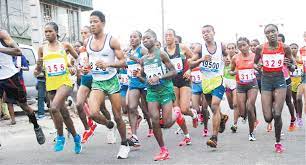No one needs to be told that the intervention of non-governmental organisations (NGO’s) is vital for the deepening of the democratic process as well as the entrenchment democracy.
NGOs in a proper democracy have a strategic oversight role as the representatives of civil society over political society as represented by the legislative and executive branches of government. In view of the dismal performances of both branches, since the restoration of civil rule 15 years ago, it is incontrovertible that they both need to be monitored.
Even in more mature democracies, it is the watchdogs of civil society that have unearthed misdemeanours such as, the fiddling with expense accounts by members of parliament in the United Kingdom. This has resulted in some former and serving MP’s going to jail.
Perhaps, this is what bothers some members of our Federal House of Representatives. In our considered opinion, the bill for an Act to “regulate the acceptance and utilisation of financial/material contribution of donor agencies for voluntary organisations,” is unnecessary, a waste of resources and should be stopped dead in its tracks.
NGO’s are already well regulated. By law, every NGO is registered with the Corporate Affairs Commission (CAC). In addition, there are clear guidelines as to the sourcing and usage of funds. Furthermore, by Section 71 of the Act establishing the National Planning Commission (NPC) that body already has the statutory fiat to monitor and regulate the activities of NGOs as well as Civil Society Organisations (CSOs) in Nigeria.
For this reason, it is utterly ridiculous for sections of the House of Representatives to be moving now to duplicate these roles to the Independent Corrupt Practices and other Related Offences Commission (ICPC). It is generally accepted as the conventional wisdom that the ICPC is already overburdened and is not able to carry out its present functions thoroughly. Why burden it with additional encumbrances?
It is because of muddled thinking like this that the Steve Oronsaye committee sought to streamline the activities of the machinery of government. Indeed, we do not need the Oronsaye report to know that various government agencies are getting in each other’s way due to the duplication of functions. Inevitably, this blunts their effectiveness. In addition, it leads to perennial, energy-sapping and totally unnecessary turf-wars.
This is why the general reaction to the latest proposition is-“here we go again!” We think, there is a clear attempt here to strangulate the NGO’s. And not just conventionally defined NGO’s. If a voluntary organisation is to be defined as an association of individuals whether incorporated or not, the net can be cast as wide as possible. For example, a fishing expedition could incorporate faith-based organisations such as churches and mosques, as well as community-based organisations such as village, town unions, voluntary service organisations can also be dragged into tortuous waters including the Boys Scouts, Rotary and Lions Clubs and so forth.
For a democracy, this is a very dangerous proposition. It is a dangerous journey to embark upon. For further down that road is the route to dictatorship. For a fledgling democracy, it is an inadvisable journey to even contemplate embarking upon.
The issue of money laundering has been brought up to justify this self-serving proposition. Frankly, it does not fly. For a start, voluntary organisations including of course the NGOs have already been designated as bodies that will report to the Special Control Unit against Money Laundering (SCUML). It beats the imagination as to what special technical capacity the ICPC has that the SCUML and the banks do not have, there is in addition of course the Presidential Committee on Financial Action Task Force. This body which should be given full operational autonomy is part of an international body that sets standards for member countries to follow in the fight against money laundering, terrorism and proliferation of weapons of mass destruction.
Finally, the House of Representatives having wasted scarce parliamentary time ought to remove the beam from its own eyes. It ought to set up an agency to set and regulate standards for parliamentarians. This will include declaration of members’ interest, relationships with lobbyists and so forth. This is what obtains in mature democracies. Such a move will be excellent use of parliamentary time and the public will give them a resounding standing ovation for an endeavour that is clearly in the interest of democracy.















